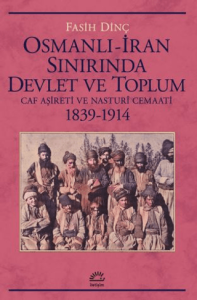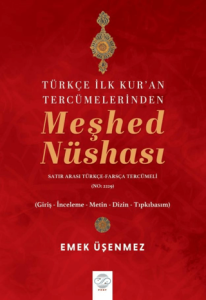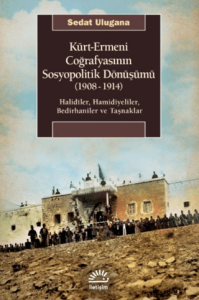Kariye Bir Anıt İki Anıtsal Kişilik Theodoros Metokhıtes'ten Thomas Whıttemore'a - From Theodoros Metokhıtes to Thomas Whıttemore One Monument Two Monumental Personalities

Bugün daha çok Kariye Camisi ya da Kariye Müzesi adıyla tanınan eski Khora Manastırı kilisesi, günümüz İstanbulu'nda ayakta kalan en etkileyici Bizans anıtlarından biridir. Büyük olasılıkla 6. yüzyıl gibi erken bir tarihte kurulan, 11. ve 12. yüzyıllarda imparatorluk ailesi üyelerince yeniden inşa edilen, 1316 ile 1321 arasında da Bizanslı hümanist, şair ve başvezir Theodoros Metokhites tarafından görkemli bir biçimde restore edilen Khora Manastırı kilisesi, bugün Geç Bizans sanatı ve mimarisinin ayakta kalan en seçkin örneklerinden sayılıyor. Yapı 19. yüzyıl boyunca "Mozaikli Cami" diye tanınmış olsa da, kilisenin zengin ve karmaşık iç bezemesinin ünü, büyük ölçüde Amerika Bizans Enstitüsü'nün (Byzantine Institute of America) kurucusu ve 1930'dan 1950'deki ölümüne değin yöneticisi olan Amerikalı bilimadamı ve hayırsever Thomas Whittemore'un başlattığı kapsamlı restorasyon kampanyasına dayanıyor. Sergi ve kataloğu, yüzyıllar boyunca üretilmiş tasvirleri aracılığıyla Kariye'nin tarihini keşfederken, 14. ve 20. Yüzyıllarda onun restorasyon ve korumasından sorumlu olmuş iki değerli insana, Theodoros Metokhites'le Thomas Whittemore'a bir saygı gösterisi niteliğini taşıyor. Bunun yanısıra, 1940'lar ve 1950'lerde Kariye'nin mimarisiyle olağanüstü mozaik ve fresko çevrimlerini korumaya yardımcı olanların çalışmalarını da onurlandırmayı amaçlıyor. Theodoros Metokhites'in elyazması, Kariye'de yapılan kazılarda meydana çıkarılan arkeolojik eserler ve Thomas Whittemore ile Amerika Bizans Enstitüsü'nün Kariye'nin eşsiz mozaik ve freskolarını onarım sürecini anlatan çok sayıda arşiv belgesi ve fotoğraf katalogda yer alıyor.
The former church of the monastery of Christ of the Chora, better known today as the Kariye Camisi or Kariye Museum, is one of the most impressive Byzantine monuments to survive in the modern city of İstanbul. Founded probably as early as the sixth century, rebuilt by members of the imperial family in the late eleventh and early twelfth centuries, and splendidly restored by the Byzantine humanist, poet, and prime minister Theodore Metochites between 1316 and 1321, the church of the Chora Monastery is today considered one of the most outstanding examples of Late Byzantine art and architecture to survive. While the building itself was already known as the 'Mosaic Mosque' during the nineteenth century, the fame of the church's rich and complex interior decoration rests by and large on an extensive restoration campaign initiated by the American scholar and philanthropist Thomas Whittemore, founder and director of the Byzantine Institute of America from 1930 to his death in 1950. It was the aim of this exhibition, to explore the history of the "Kariye" through its representation over the centuries, and to pay homage to the two men who were responsible for its restoration and conservation in the fourteenth and twentieth centuries respectively: Theodore Metochites and Thomas Whittemore. The exhibition furthermore aimed to celebrate the work of those who have helped to preserve the architecture of the Kariye and its extraordinary cycle of mosaics and frescoes during the 1940s and 1950s.
Bugün daha çok Kariye Camisi ya da Kariye Müzesi adıyla tanınan eski Khora Manastırı kilisesi, günümüz İstanbulu'nda ayakta kalan en etkileyici Bizans anıtlarından biridir. Büyük olasılıkla 6. yüzyıl gibi erken bir tarihte kurulan, 11. ve 12. yüzyıllarda imparatorluk ailesi üyelerince yeniden inşa edilen, 1316 ile 1321 arasında da Bizanslı hümanist, şair ve başvezir Theodoros Metokhites tarafından görkemli bir biçimde restore edilen Khora Manastırı kilisesi, bugün Geç Bizans sanatı ve mimarisinin ayakta kalan en seçkin örneklerinden sayılıyor. Yapı 19. yüzyıl boyunca "Mozaikli Cami" diye tanınmış olsa da, kilisenin zengin ve karmaşık iç bezemesinin ünü, büyük ölçüde Amerika Bizans Enstitüsü'nün (Byzantine Institute of America) kurucusu ve 1930'dan 1950'deki ölümüne değin yöneticisi olan Amerikalı bilimadamı ve hayırsever Thomas Whittemore'un başlattığı kapsamlı restorasyon kampanyasına dayanıyor. Sergi ve kataloğu, yüzyıllar boyunca üretilmiş tasvirleri aracılığıyla Kariye'nin tarihini keşfederken, 14. ve 20. Yüzyıllarda onun restorasyon ve korumasından sorumlu olmuş iki değerli insana, Theodoros Metokhites'le Thomas Whittemore'a bir saygı gösterisi niteliğini taşıyor. Bunun yanısıra, 1940'lar ve 1950'lerde Kariye'nin mimarisiyle olağanüstü mozaik ve fresko çevrimlerini korumaya yardımcı olanların çalışmalarını da onurlandırmayı amaçlıyor. Theodoros Metokhites'in elyazması, Kariye'de yapılan kazılarda meydana çıkarılan arkeolojik eserler ve Thomas Whittemore ile Amerika Bizans Enstitüsü'nün Kariye'nin eşsiz mozaik ve freskolarını onarım sürecini anlatan çok sayıda arşiv belgesi ve fotoğraf katalogda yer alıyor.
The former church of the monastery of Christ of the Chora, better known today as the Kariye Camisi or Kariye Museum, is one of the most impressive Byzantine monuments to survive in the modern city of İstanbul. Founded probably as early as the sixth century, rebuilt by members of the imperial family in the late eleventh and early twelfth centuries, and splendidly restored by the Byzantine humanist, poet, and prime minister Theodore Metochites between 1316 and 1321, the church of the Chora Monastery is today considered one of the most outstanding examples of Late Byzantine art and architecture to survive. While the building itself was already known as the 'Mosaic Mosque' during the nineteenth century, the fame of the church's rich and complex interior decoration rests by and large on an extensive restoration campaign initiated by the American scholar and philanthropist Thomas Whittemore, founder and director of the Byzantine Institute of America from 1930 to his death in 1950. It was the aim of this exhibition, to explore the history of the "Kariye" through its representation over the centuries, and to pay homage to the two men who were responsible for its restoration and conservation in the fourteenth and twentieth centuries respectively: Theodore Metochites and Thomas Whittemore. The exhibition furthermore aimed to celebrate the work of those who have helped to preserve the architecture of the Kariye and its extraordinary cycle of mosaics and frescoes during the 1940s and 1950s.





















